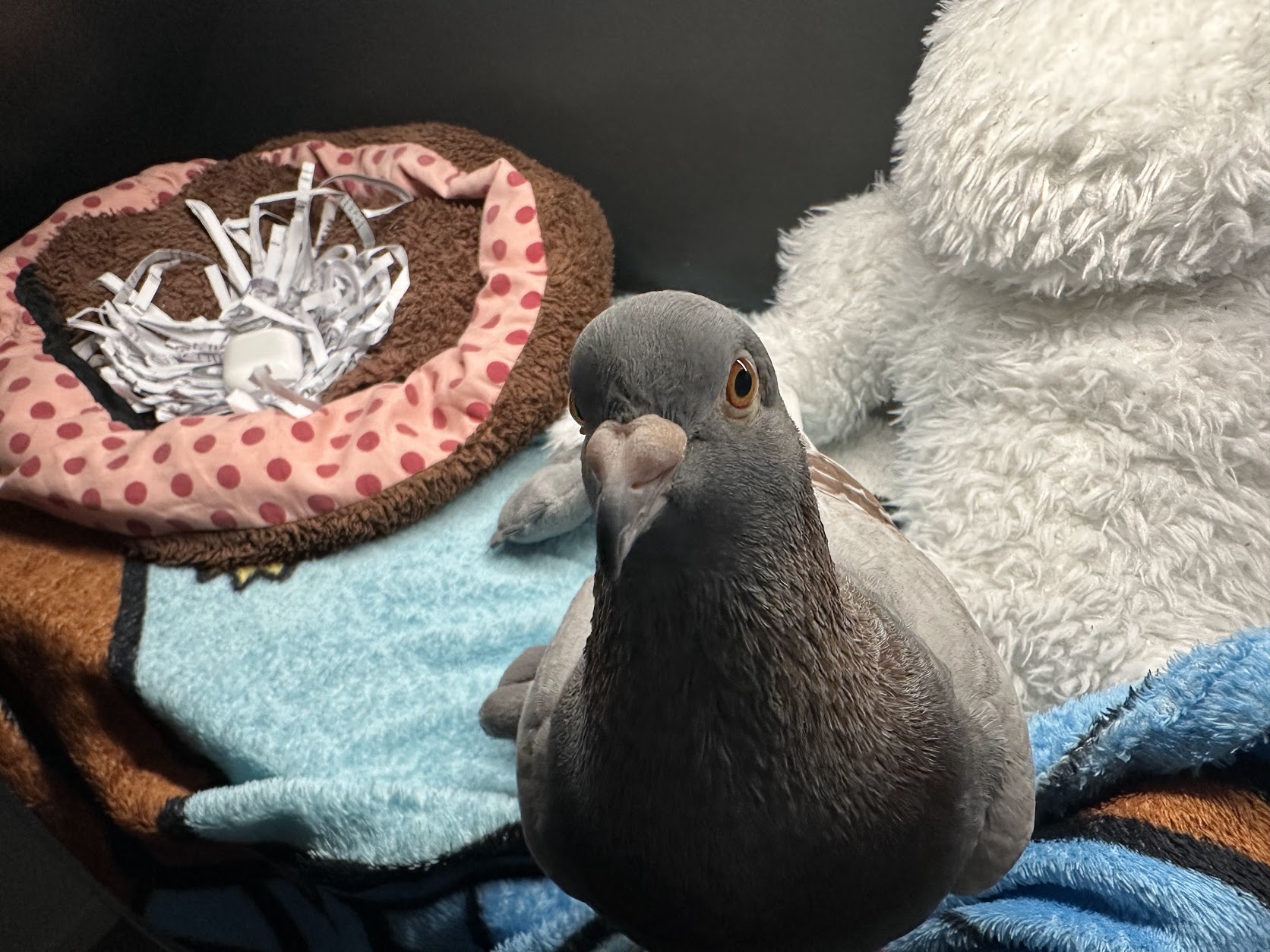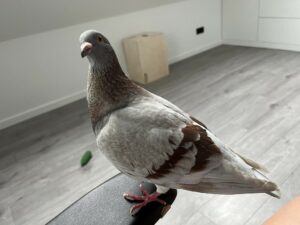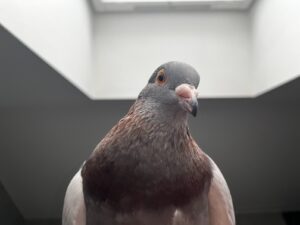In this article, I will dive into the incubation process of pigeon eggs, including how long it typically takes for them to hatch, factors that can affect the incubation period, and the importance of monitoring eggs during this crucial stage.
Whether you’re a pet owner, a bird enthusiast, or simply curious about these amazing birds, read on to learn more about the wonder of pigeon breeding.
As a rescued pet pigeon owner, I can attest to the unique and special bond that forms between a person and their feathered companion. I never expected to fall in love with pigeons the way I have, but once I learned about their fascinating nesting habits and behaviors, I was hooked.
Pigeons are fascinating birds, known for their intelligence, social behavior, and strong homing instincts. As pet owners, we have the unique privilege of getting to witness their nesting habits and behaviors up close.
But beyond just being a fascinating hobby, understanding the breeding habits of pigeons is also crucial for their conservation and management.
JUMP TO:
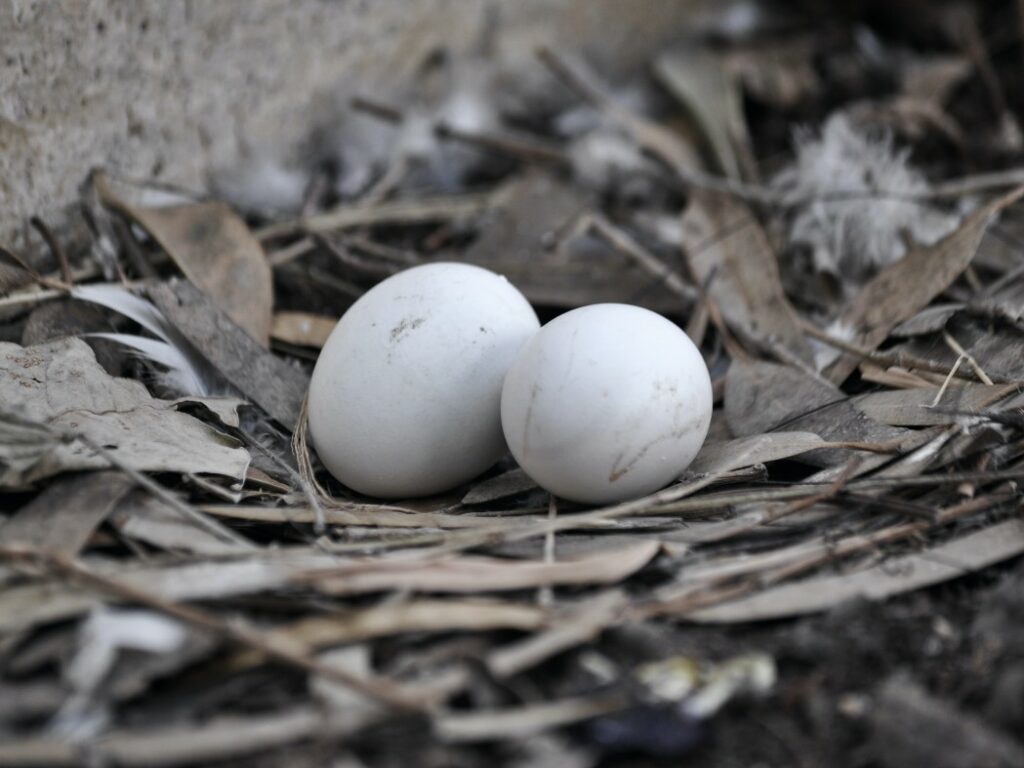
10-second summary
How long do pigeon eggs take to hatch? On average, pigeon eggs hatch after 18 days.
Check other pigeon-focused articles:
Pigeon egg incubation process
How pigeons incubate their eggs
The incubation process of pigeon eggs is a fascinating and intricate dance between male and female pigeons. Unlike many other bird species, where the female takes on the majority of the incubation responsibilities, in pigeons, both the male and female play an active role in keeping the eggs warm and protected.
The process begins with the female laying one or two eggs, which are then incubated by both parents. The male and female take turns sitting on the eggs to keep them warm and protect them from the elements. They also use their beaks to adjust the eggs’ position and turn them regularly to ensure proper development.
Factors that can affect the incubation period
Temperature and humidity play a crucial role in the incubation process. Pigeons have a highly developed thermoregulation system that allows them to adjust their body temperature to keep the eggs at the optimal incubation temperature.
If the temperature falls too low, the eggs may not hatch, while if it gets too high, the eggs may become overheated, causing damage. Similarly, humidity levels that are too high or too low can also affect the hatching success of the eggs.
The role of both the male and female pigeon in incubation
Both the male and female pigeons work together to ensure the eggs are kept at the right temperature and humidity level, which is a critical part of the incubation process.
As the eggs near hatching, the parents will become increasingly attentive and protective of their nest, in preparation for the arrival of their chicks.
Related articles:
How long do pigeon eggs take to hatch?
The average incubation period for pigeon eggs (17-19 days)
One of the most intriguing aspects of pigeon breeding is understanding how long it takes for the eggs to hatch. The average incubation period for pigeon eggs is around 17-19 days, with most eggs hatching within this time frame.
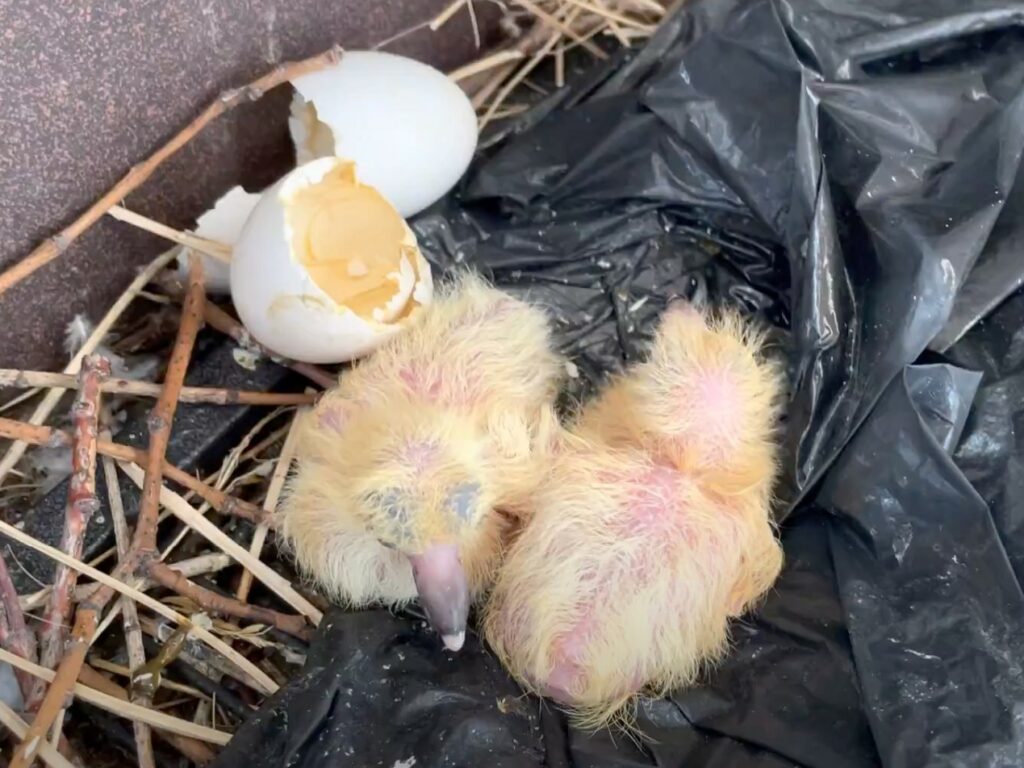
Variations in incubation time based on species or subspecies of pigeon
However, it’s important to note that there can be variations in incubation time based on the species or subspecies of pigeon. For example, some species may have a shorter or longer incubation period than the average 17-19 days.
Importance of monitoring eggs during incubation to ensure hatching success
The length of the incubation period is also affected by various external factors such as temperature and humidity, which can affect the hatching success of the eggs.
For this reason, it is crucial to monitor the eggs during the incubation process to ensure hatching success.
This can be done by observing the parents’ behavior and noting any changes in the eggs’ appearance or position.
- As a pet owner, it’s important to understand that the incubation period is a delicate and critical stage in the breeding process.
- By monitoring the eggs and understanding the incubation period, you can ensure that your pigeons have the best chance of successfully hatching their eggs.
- Additionally, monitoring and reporting on pigeon breeding in your local area can contribute to conservation efforts, and ensure that these amazing birds continue to thrive for generations to come.
A word about pigeon fake eggs
Pigeon fake eggs, also known as decoys or dummy eggs, are used by pigeon control professionals and bird enthusiasts to discourage pigeons from nesting in certain areas.
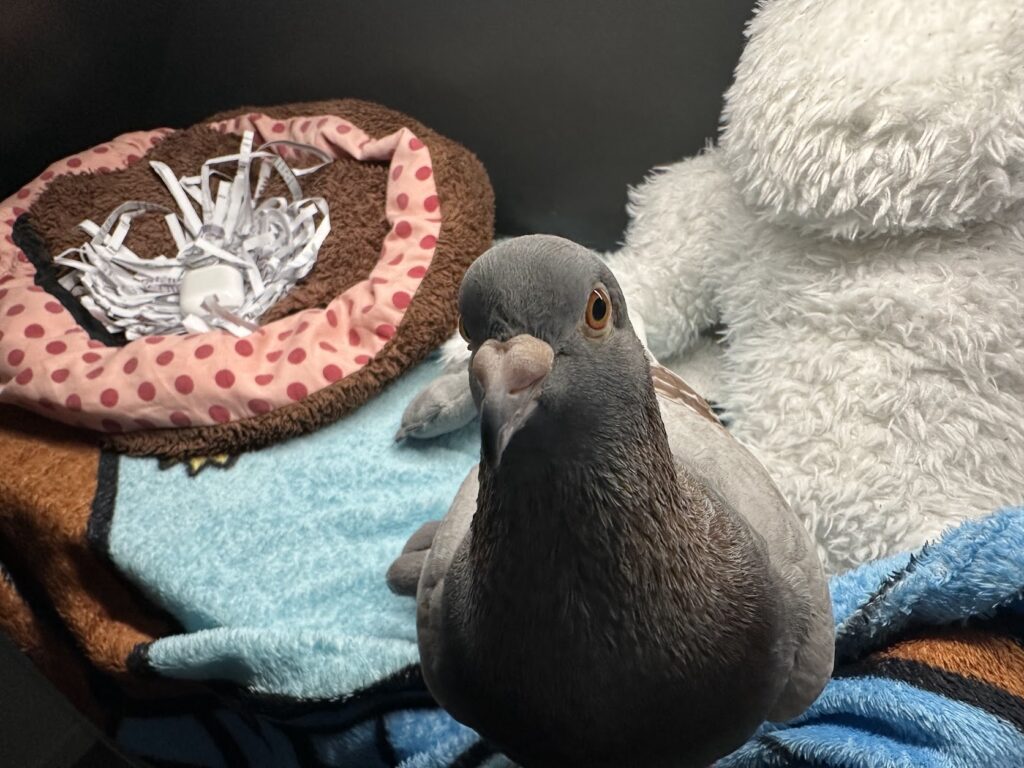
These fake eggs are typically made of plastic or other synthetic materials and are designed to closely resemble real pigeon eggs.
They are placed in pigeon nests or on ledges where pigeons are known to congregate, in order to trick the birds into believing that the area is already occupied.
This can discourage them from laying eggs and ultimately reduce the population of pigeons in the area.
Pigeon fake eggs can be an effective tool for managing pigeon populations, but it is important to use them in conjunction with other control measures, such as exclusion and habitat modification.
Final thoughts on the pigeon egg-hatching process
In conclusion, the incubation period of pigeon eggs is approximately 17-19 days. The eggs should be kept at a constant temperature and humidity, and should be turned regularly to ensure proper development.
Understanding the breeding cycle of pigeons is important for conservation and management efforts. We encourage readers to observe and report on pigeon breeding in their local area to contribute to monitoring and conservation efforts.
Frequently asked questions about the pigeon egg cycle
How long do pigeon eggs take to hatch?
Pigeon eggs generally take 17-19 days to hatch.
How often should I turn the eggs during incubation?
The eggs should be turned several times a day during the incubation period to ensure proper development. Keep in mind that it is not recommended to incubate wild pigeon eggs. This advice applies only if you are a pigeon breeder.
What is the ideal temperature and humidity for incubating pigeon eggs?
The ideal temperature for incubating pigeon eggs is around 37.5-38.5C, and the ideal humidity is around 60%.
Can I incubate pigeon eggs in an artificial incubator?
Yes, pigeon eggs can be incubated in an artificial incubator as long as the temperature and humidity are controlled to mimic the natural conditions. Keep in mind that it is not recommended to incubate wild pigeon eggs. This advice applies only if you are a pigeon breeder.
Can I candle pigeon eggs to check for fertility?
Yes, you can candle pigeon eggs to check for fertility by holding a bright light behind the egg and checking for signs of development.
Can I incubate pigeon eggs with other types of bird eggs?
It is not recommended to incubate pigeon eggs with other types of bird eggs as they may have different incubation periods and temperature/humidity requirements.
Pigeon eggs not hatching after 21 days. What to do?
If the eggs are not hatching, it could be due to several factors such as improper temperature/humidity, lack of turning, or infertile eggs. It is best to consult a professional or do more research on proper incubation techniques.
How can I tell if a pigeon egg is fertile?
One way to determine if a pigeon egg is fertile is by candling it, which involves holding a bright light behind the egg to check for signs of development. Another way is by checking for a small red blood vessel on the egg yolk, which indicates that the egg was fertilized.
How can I tell if a pigeon egg is infertile?
An infertile pigeon egg will have no signs of development or blood vessels when candled. It may also be smaller in size, have a different shape, or have a different color than a fertile egg.
How do I know when the eggs are ready to hatch?
As the hatching day approaches, the eggs will become more opaque, and you may be able to see movement inside the egg as the chick turns and positions itself for hatching. A small crack may also appear on the eggshell as the chick begins to pip (peck) its way out.
How many eggs does a pigeon lay at a time?
A pigeon typically lays one or two eggs at a time, with both the male and female taking turns incubating them. The eggs are laid a day or two apart, and both eggs are usually incubated for the same duration. After hatching, both parents care for the chicks.
Can I touch pigeon eggs?
It is not recommended to touch pigeon eggs as it can introduce bacteria and cause the eggs to become contaminated. Additionally, handling the eggs can also disrupt the natural incubation process. If you must handle the eggs, it is important to do so with clean hands and to minimize contact with the eggs as much as possible.
How long do pigeons sit on their eggs?
Pigeons typically sit on their eggs for 17-19 days during the incubation period. Both the male and female take turns incubating the eggs, with one bird sitting on the eggs while the other bird goes out to forage for food.
Do pigeons sit on their eggs all the time?
No, pigeons do not sit on their eggs all the time. Both the male and female take turns incubating the eggs, with one bird sitting on the eggs while the other bird goes out to forage for food. This allows both parents to take breaks and tend to their own needs while still ensuring the eggs are kept at a consistent temperature and humidity.
You will also like these similar articles:

